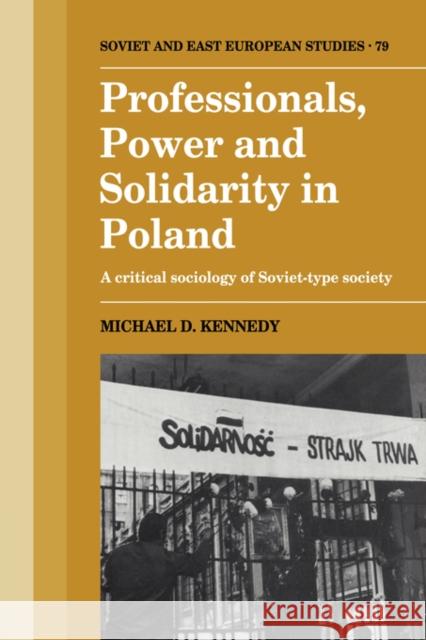Professionals, Power and Solidarity in Poland: A Critical Sociology of Soviet-Type Society » książka
Professionals, Power and Solidarity in Poland: A Critical Sociology of Soviet-Type Society
ISBN-13: 9780521390835 / Angielski / Twarda / 1991 / 444 str.
Professionals, Power and Solidarity in Poland: A Critical Sociology of Soviet-Type Society
ISBN-13: 9780521390835 / Angielski / Twarda / 1991 / 444 str.
(netto: 593,41 VAT: 5%)
Najniższa cena z 30 dni: 604,49 zł
ok. 16-18 dni roboczych.
Darmowa dostawa!
Michael Kennedy develops a theoretical conception of Soviet-type societies by analyzing Solidarity's significance on three levels. First, he explains the background to and nature of the conflict between Solidarity and the authorities by examining the relation between the distribution of power and movement strategies. Second, he considers the implications of Solidarity's struggle for the theory of the Soviet-type system's reproduction and transformation by offering a critique and synthesis of relevant theories of class and civil society. Third, he examines the internal constitution of Solidarity in terms of gender and, in particular, cross-class alliances. He argues that because engineers and physicians were dependent on the self-organized working class in this conflict between civil society and state, professional projects had to be recast in visions suitable to the alliance. In a concluding chapter, he explores the implications of his analysis both for understanding perestroika in the Soviet Union and more generally for reformulating a critical sociology of Soviet-type societies.











